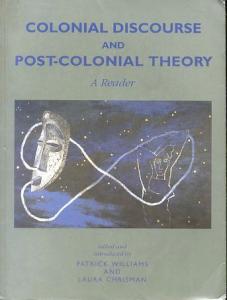
İkinci El
Equally suitable for undergraduates and specialists in the humanities, this collection provides an in-depth introduction to debates within post-colonial theory and criticism. The readings are drawn from a diverse selection of Third World and Western thinkers, both historical and contemporary. "Post-colonialism" is taken by the editors to include Third World and diasporic experience; like "colonialism," it is understood to contain a complex set of cultural, ethnographic, political, and economic processes and conflicts.
This volume explores such issues as the nature of colonized cultures and anti-colonial resistance; subaltern historiography; constructions of Western subjectivity, knowledge, and gender; the formation of post-colonial intellectuals; the metropolitan institutionalization of post-colonialism; neo-colonialism; and the nature of minority and post-colonial identity and discourse. One section is devoted to the application of theoretical formulations to cultural criticism, and contains a number of textual analyses. A general introduction to the volume as well as introductions to each section provide historical, theoretical, and poltical contexts for the readings. The book concludes with an extensive bibliography.
İkinci El
Equally suitable for undergraduates and specialists in the humanities, this collection provides an in-depth introduction to debates within post-colonial theory and criticism. The readings are drawn from a diverse selection of Third World and Western thinkers, both historical and contemporary. "Post-colonialism" is taken by the editors to include Third World and diasporic experience; like "colonialism," it is understood to contain a complex set of cultural, ethnographic, political, and economic processes and conflicts.
This volume explores such issues as the nature of colonized cultures and anti-colonial resistance; subaltern historiography; constructions of Western subjectivity, knowledge, and gender; the formation of post-colonial intellectuals; the metropolitan institutionalization of post-colonialism; neo-colonialism; and the nature of minority and post-colonial identity and discourse. One section is devoted to the application of theoretical formulations to cultural criticism, and contains a number of textual analyses. A general introduction to the volume as well as introductions to each section provide historical, theoretical, and poltical contexts for the readings. The book concludes with an extensive bibliography.



